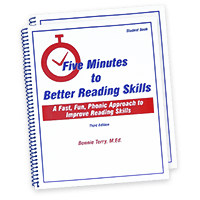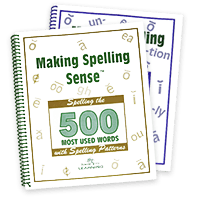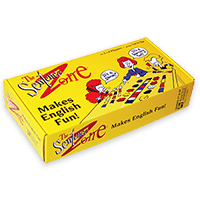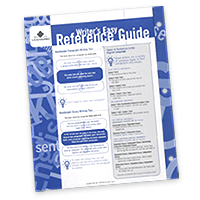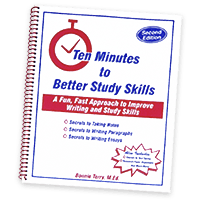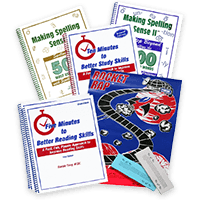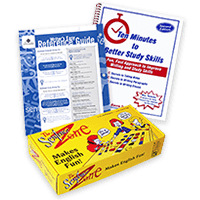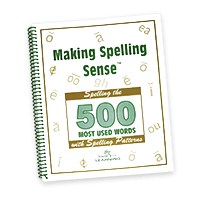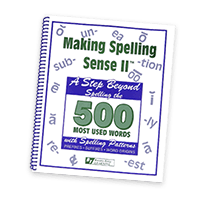How Homework Can Help Build Self-Esteem and Confidence
September 25th, 2017[vc_row][vc_column][vc_column_text]Self-esteem and homework, is there a connection? This is the second area of the homework topic that no one seems to be talking about. The second redeeming benefit of 15 minutes a day of homework is teaching a sense of self-esteem. Kids need to feel like they belong, can contribute, and are needed. They also need to feel confident, have a sense of achievement, respect of self and others.
Self-esteem, confidence, friendship, problem-solving are all part of every human’s basic needs. When kids complete their homework, they feel good about themselves. Their self-esteem goes up a notch. When they produce a complete assignment, they feel worthwhile. When this happens over and over again, you have kids that are filled with self-esteem.
William Glasser, noted psychiatrist believes that humans have two basic needs:
- Meaningful involvement or connections with someone else
- Meaningful contribution so we feel worthwhile to ourselves and each other (producing and contributing)
According to Abraham Maslow, psychiatrist and psychology professor, when we meet our basic human needs, we learn more effectively and learning becomes easier.
Maslow is best known for his ‘Hierarchy of Basic Human Needs‘.[/vc_column_text][vc_single_image image=”10637″ img_size=”full” onclick=”custom_link” img_link_target=”_blank” link=”http://pin.it/TcFE-cS”][vc_column_text]When kids can do their homework, completing the 11 steps of the homework process, it is a huge accomplishment. Developing the executive function skills needed to complete homework is huge! Kids feel good about themselves. They feel capable. They feel responsible. They feel confident.[/vc_column_text][vc_column_text]
Self-Esteem, Confidence Building, and Executive Function Skills Benefits of Homework
Homework develops executive function skills as well as responsibility, accomplishment, and achievement. Homework should be looked at in those terms! Homework should not be punishment, busy work, or drudgery. In keeping these benefits of teaching planning, organizational skills, achievement, and confidence in mind, we must then give reasonable homework assignments. When homework is just 15 to 20 minutes a day for elementary students, they gain the executive function skills and self-esteem skills. They also then have free time, down time, creative time. Kids need time to explore and be curious.
For 3rd through 8th grade, homework assignments can and should take at most 15 to 20 minutes: for example, read a book for 10 to 15-minutes and write one to two sentences about what you read. This assignment actually requires 11 steps from planning to execution and completion. Teaching kids how to plan improves their executive function skills. Completing the process gives that ‘Woo Hoo, I did it! I am capable!’ feeling.
Does Too Much Homework Defeat Its Purpose?
Studies show that elementary students do not gain academic benefit from homework. However, the building of executive function skills, confidence, and self-esteem do make it worthwhile. Too much homework typically backfires, though. Too much homework often leads to kids hating school, hating reading, or hating math.
Education researcher Harris Cooper compiled 120 homework studies in 1989 and another 60 in 2006. His findings demonstrate that elementary students do not gain academic benefits from homework. High school students do benefit from a limited amount of homework. Two hours (at the most) of homework in high school is effective in boosting academic skills. More than two hours diminishes the academic boost.
Homework Best Practices to Build Executive Function and Self-Esteem
Since homework does not have academic benefit in elementary school, assignments should be just quick practice assignments. In other words, assignments that kids can do without struggling through them.
Typical 15 to 20-minute homework assignments can be rotated throughout the week:
1st – 5th grade
- Write your spelling words 3 times each.
- Read for 10 minutes and write 2 sentences about what you read.
- Practice your math facts for 15 minutes.
- Write 5 sentences using your spelling words.
6th – 8th grade
- Define five vocabulary words and sort them into categories.
- Read for 15 minutes and write 5 sentences about what you read.
- Practice your math facts/problems for 15 minutes.
- Define five vocabulary words (science or social studies) and sort them into categories or draw illustrations of them.
9th – 12th grade
Total homework should not be more than 2 hours so each teacher should not give more than 15 to 20 minutes a night. (6 classes at 15 minutes is 1 ½ hours; 6 classes at 20 minutes is 2 hours.) Teachers should coordinate major projects so daily homework does not exceed 2 hours.[/vc_column_text][/vc_column][/vc_row][vc_row][vc_column][/vc_column][/vc_row]









